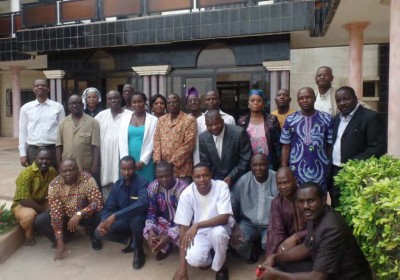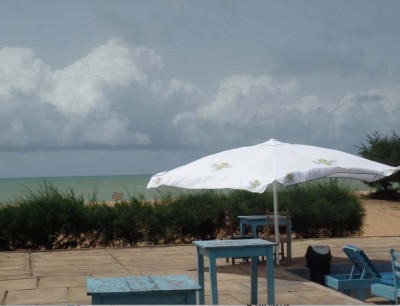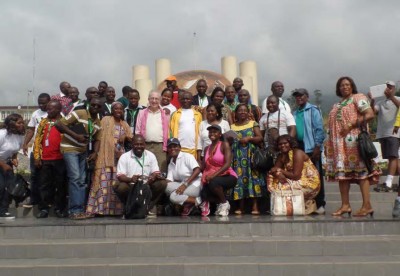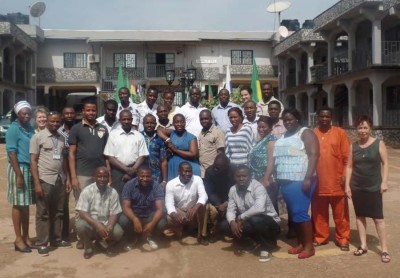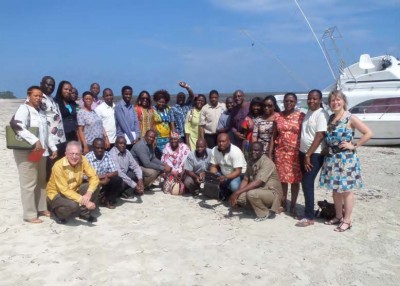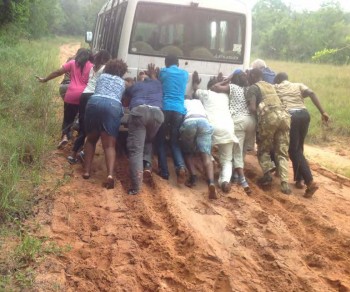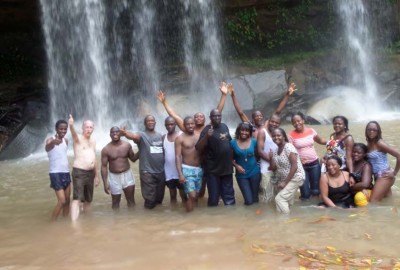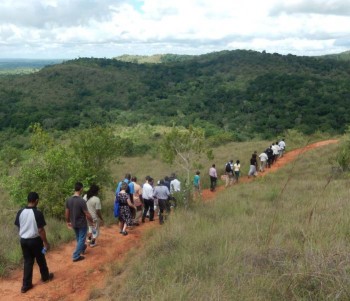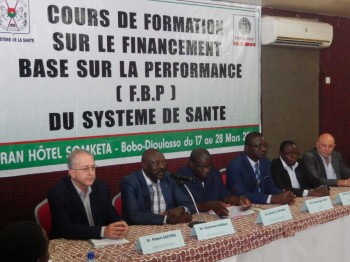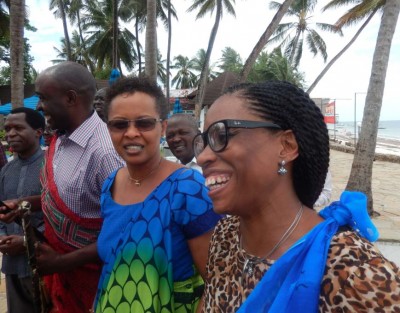The 45th PBF course in Cotonou took place from the 23rd of March to the 3rd of April 2015 with twenty-two participants from Niger (10x), Benin (5x), Cameroon (3x), Burkina Faso (3x) and Ivory Coast (1x ).
The participants appreciated the course with an average score of the daily evaluations of 85% compared to 79% for the 22 previous French courses. The satisfaction with the facilitation was 93%. Three participants received certificates of distinction, which means a score of 90% or more for the final test. These were for Dr Justin Kocou Djidonou from Benin; Dr Adama Sanon from Burkina Faso and; Dr Nestor YOUGBARE from Burkina Faso.
CONCLUSIONS for EACH of the PARTICIPATING COUNTRIES
Niger will start PBF in the health district of Boboye in Dosso region with technical support from the World Bank, which will cover a population of 400,000.
Participants’ recommendations for Niger:
- Authorities should apply all PBF best practices in the pilot project;
- The course group will inform and create awareness about PBF among the administrative authorities, local elected officials, partners, etc ;
- The project should establish a Regional Contract Development and Contracting Agency instead of a central one;
- The project should conduct the mapping of public and private health facilities in the pilot area and sign contracts (primary and secondary) both with public and private health facilities;
- Define the indicators for the community PBF activities.
Benin has performed reasonably well since 2012 with the pilot PBF programme by: (1) Improving the motivation of health staff; (2) Improving the professional quality of the health facilities; (3) Increasing the ownership for the peer group reviews among hospital staff; (4) By creating improved data availability at: http://www.beninfbr.org/
Yet, the PBF program is not yet pure and the feasibility score is 58%.
Participants’ recommendations for Benin:
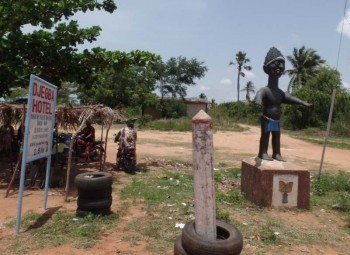 Avoid the accumulation of functions at the central level and create more checks and balances;
Avoid the accumulation of functions at the central level and create more checks and balances;- Health facility contracts should be signed by Regional Contract Development and Verification Agencies and not by the central level;
- Maintain at least 95% coverage for immunisation activities at the health facility and;
- Respect vaccines conservation standards at the health facility.
Burkina Faso started in 2010 a PBF pre-pilot in three health districts. The pilot was extended in 2014 towards 15 health districts covering with 4.2 million people 25% of the BF population. The results are satisfactory, but the feasibility scan score of 68% could still be improved.
Participants’ recommendations for Burkina Faso:
To the Ministry of Health: (1) Continue the expansion of PBF to all districts in the country; (2) Ensure the sustainability of the PBF strategy; (3) Ensure proper implementation of all PBF best practices.
To the partners: (1) Provide more funding for PBF; (2) Assist Burkina Faso towards the upscaling of PBF to all districts.
The Cameroon – Far North Region.
The Cordaid funded PBF pilot started in January 2012 and has produced satisfactory results. The local Contract Development and Verification Agencies is the Association for the Promotion of Health in the Far North (APROSEN). The feasibility scan shows a score of 66%.
Participants’ recommendations for Cameroon:
 Integrate the health facilities currently covered by Cordaid and APROSEN in the PAISS / World Bank PBF program;
Integrate the health facilities currently covered by Cordaid and APROSEN in the PAISS / World Bank PBF program;- Develop emergency PBF indicators to respond to the insecurity in the Far North caused by the Boko Haram insurgency;
- Review and improve the PBF equity indicators to assist the vulnerable;
- Take into account that the local CDV Agency (APROSEN) has already a good knowledge of the region.
Ivory Coast. The government and the World Bank plan to implement a PBF program for around 3.5 million inhabitants. Few private organizations in Ivory Coast are yet involved in the various PBF functions. To overcome this deficiency the Global Challenge Corporation organization offers its technical assistance.

